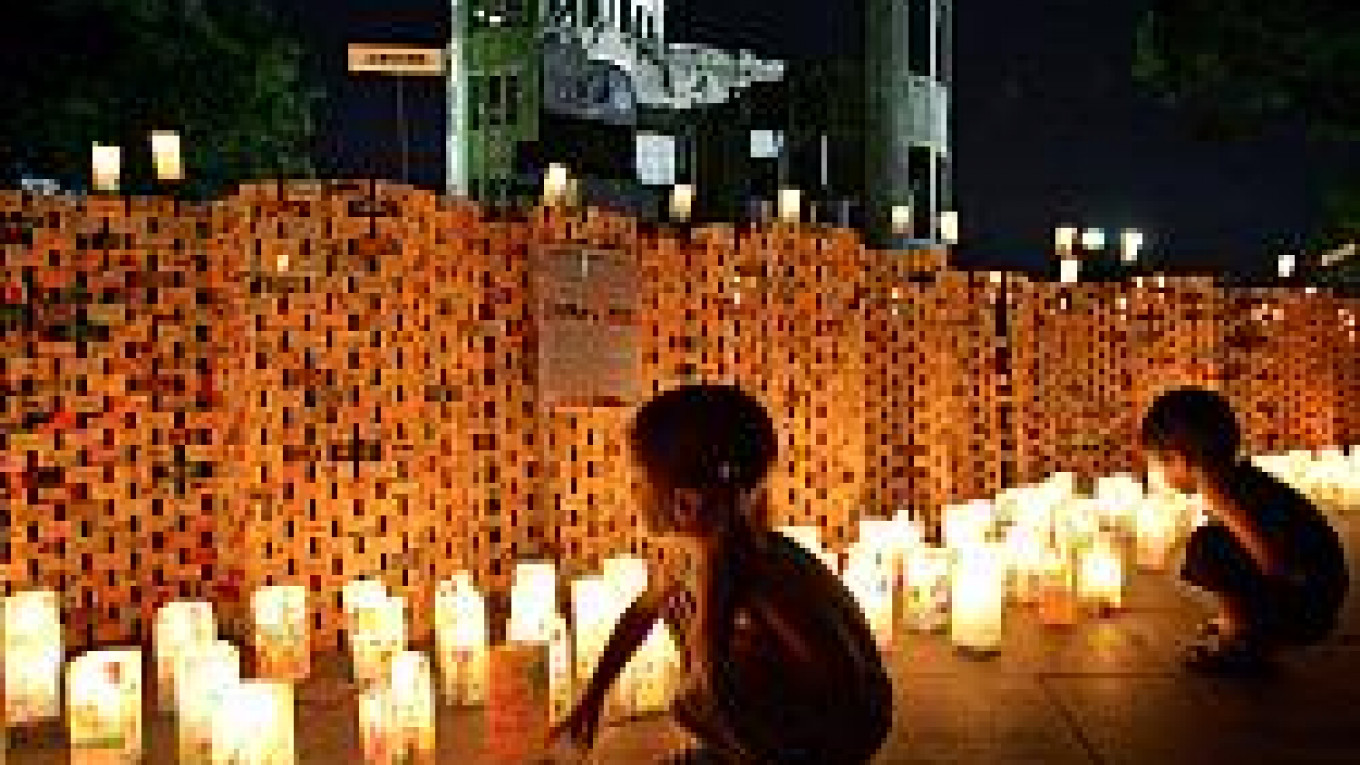Within days, Tokyo's million-man army in the region had collapsed in one of the greatest military defeats in history.
"It was a massive campaign and a crushing blow for Japan, which was already in a bad way after fighting for almost four years in the Pacific War," said Nigel Steel, a World War II historian at the Imperial War Museum in London.
Historians say the now largely forgotten Red Army victory -- codenamed August Storm -- not only hastened the end of World War II but also set the stage for the Korean War and for the victory in 1949 of the Chinese communists in the civil war against the Nationalists.
Some Japanese historians believe it had a greater effect on the decision of the Japanese leadership to end the Pacific War than the dropping of the atomic bombs on Hiroshima and Nagasaki, which came within days of the Soviet attack.
"The impact of atomic bombs [on the Japanese army's decision to surrender] is being overestimated," said Arai Shinichi, historian and professor emeritus of Ibaragi University and Surugadai University.
More important in persuading Tokyo to surrender were the Soviet decision to enter the war in the Far East, the Red Army's lighting advance through Manchuria, and the collapse of Japanese efforts to enlist the Soviets as peace intermediaries, Arai said.
Still, because August Storm came in the midst of the two atomic blasts, it has been largely neglected by Western historians.
"Cold War propaganda contributed to their being largely overlooked from the Anglo-American perspective," Steel said. "We always have focused on the atomic attacks, which for us represented the definitive blow."
In Russia, too, the far-off campaign was eclipsed by the bloody life-and-death struggle against Nazi Germany, dubbed the Great Patriotic War, said Alexander Koltyukov, director of Moscow's Institute of Military History.
Despite the unprecedented scale of the Soviet victory in the Far East, the relatively light casualties suffered by the Red Army in the Asia campaign also contributed to it being viewed as a sideshow, Koltyukov said.
Japan's forces in northeast Asia, known as the Kwantung Army, had already tangled with the Russians in 1939 when the Japanese tried to invade Mongolia. Their crushing defeat at the hands of General Georgy Zhukov -- an up-and-coming commander who later crafted the Soviet victory against the Nazis -- persuaded Tokyo to turn against U.S., British, French and Dutch forces in Southeast Asia instead.
Moscow and Tokyo eventually signed a neutrality pact that kept the Soviet Union out of the Pacific War that followed Japan's attack on Pearl Harbor on Dec. 7, 1941. In fact, following the Nazi surrender on May 8, 1945, Tokyo looked to Moscow to mediate an end to the war in the Far East.
But unbeknown to the Japanese, Soviet leader Josef Stalin had promised Washington and London that he would attack Japanese forces within three months of Germany's defeat.
A force of 1.5 million Soviet troops under the command of Marshal Alexander Vasilevsky poured across the Manchurian frontier in a huge battle of encirclement on Aug. 8, catching the Kwantung Army completely off guard. Despite tenacious, often suicidal, resistance by the Japanese, within days the quick-moving Soviets had penetrated 900 kilometers into China, Korea and the Kuril Islands.
Up to that point -- although Japan had been weakened by defeats in Burma, the Philippines and a string of Pacific islands -- the Imperial Military Command believed it could still hold out against an Allied invasion of the home islands if it retained control of Manchuria and Korea, which provided Japan with the resources for war.
But then came the Soviet attack. After the death of 80,000 troops -- compared with about 8,200 Soviet casualties -- and the loss of the Kuril Islands, within striking distance of Japan's northernmost island of Hokkaido, Tokyo finally accepted the inevitability of defeat.
"The impact of the blow in Manchuria persuaded Japan's civilian and political leadership more than the atomic strikes to recognize they stood no chance at all of holding out even in the home islands," Steel said.
Although Moscow and Tokyo normalized diplomatic relations in 1956, Japan has refused to sign a peace treaty formally ending hostilities until the Soviet Union returns the "Northern Territories," four small islands off the coast of Hokkaido that Tokyo claims have always been Japanese territory.
A Message from The Moscow Times:
Dear readers,
We are facing unprecedented challenges. Russia's Prosecutor General's Office has designated The Moscow Times as an "undesirable" organization, criminalizing our work and putting our staff at risk of prosecution. This follows our earlier unjust labeling as a "foreign agent."
These actions are direct attempts to silence independent journalism in Russia. The authorities claim our work "discredits the decisions of the Russian leadership." We see things differently: we strive to provide accurate, unbiased reporting on Russia.
We, the journalists of The Moscow Times, refuse to be silenced. But to continue our work, we need your help.
Your support, no matter how small, makes a world of difference. If you can, please support us monthly starting from just $2. It's quick to set up, and every contribution makes a significant impact.
By supporting The Moscow Times, you're defending open, independent journalism in the face of repression. Thank you for standing with us.
Remind me later.


